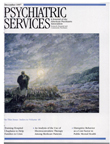Memory Quest: Trauma and the Search for Personal History
It is a relief to read a book about memory that is not an antitrauma polemic and that acknowledges some of the troubling realities about memory that surface in the psychotherapist's office. This is such a book. It covers some of the phenomenology of memory and its definitions by neurobiology, behavioral psychology, and developmental research, as well as the memory impediments defined by psychoanalysis, ego psychology, and trauma theory. The last section of the book deals with memory issues as they appear in psychotherapy and offers many clinical examples.
Waites, a psychologist, provides numerous useful references about infantile memory, starting with the example of Helen Keller who retrieved at age six memories about the word "water," which she had learned before she lost her hearing at age 19 months. It was this recovery of an infantile memory trace—taking place, as it so often does, within a sensorimotor reenactment as Helen Keller touched the water—that reopened the doors of language to her. We learn about other children who were able to narrate traumatic events that occurred before they were able to speak, and we learn that six-month-olds remember for 15 to 16 days. Certainly, the developmental rearrangement of memory organization at ages four to six confounds retrieval for much of the episodic aspects of these infantile memories, but all these processes are much more variable than the most dogmatic of the memory skeptics would have us believe.
In this readable book, Waites emphasizes the social and reconstructive aspects of memory. They include the ritual commemorations and memorializations that organize encoding and retrieval and that may idealize a particular official story, alienating those whose memories contain different versions of particular episodes of family or communal history.
In Memory Quest, Waites points out that it is as much a hypothesis to assume no relationship between prior trauma and current symptoms as it is to posit a relationship. Exploration of childhood scenes or salvaged artifacts are some of the ways individuals test these hypotheses. Ultimately, however, traumatic memories must be processed to a level of symbolization so that they no longer intrude so disruptively into present reality.
Dr. Goodwin is affiliated with the department of psychiatry at the University of Texas Medical Branch at Galveston.



